
A sustainable chain
At Nine & Co. We find a healthy world for you and your child of great importance. That's why we don't just spend attention to design, but we also strive for a production process that is as sustainable as possible. We focus on fair working conditions in the chain and a growing share of sustainable materials in our fashion items. we want we reduce our impact and burden the environment as little as possible.
Our goals
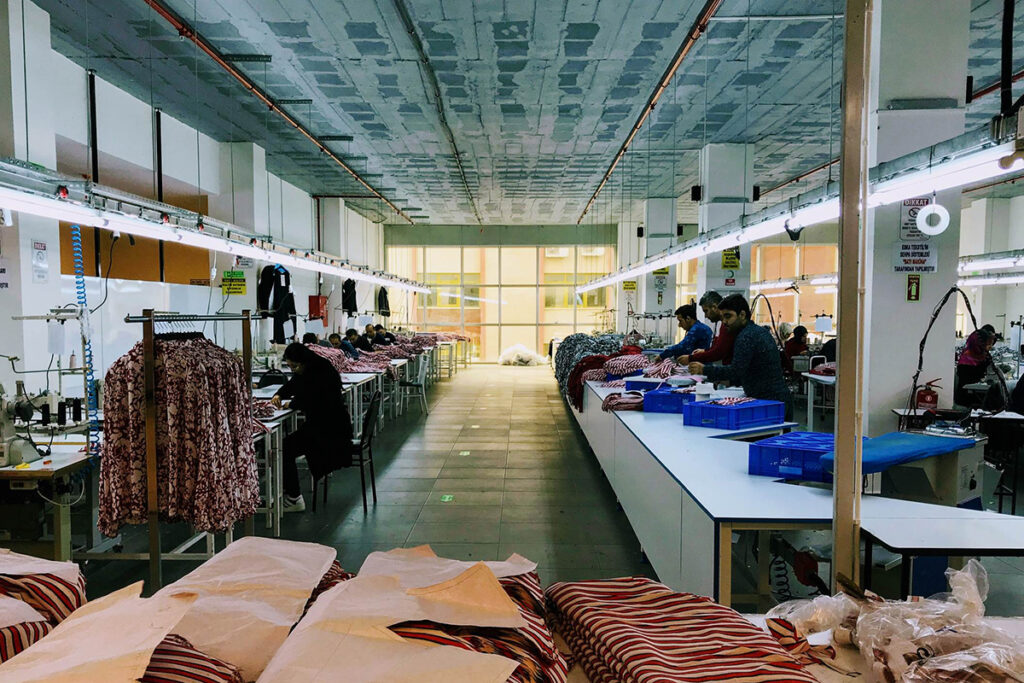
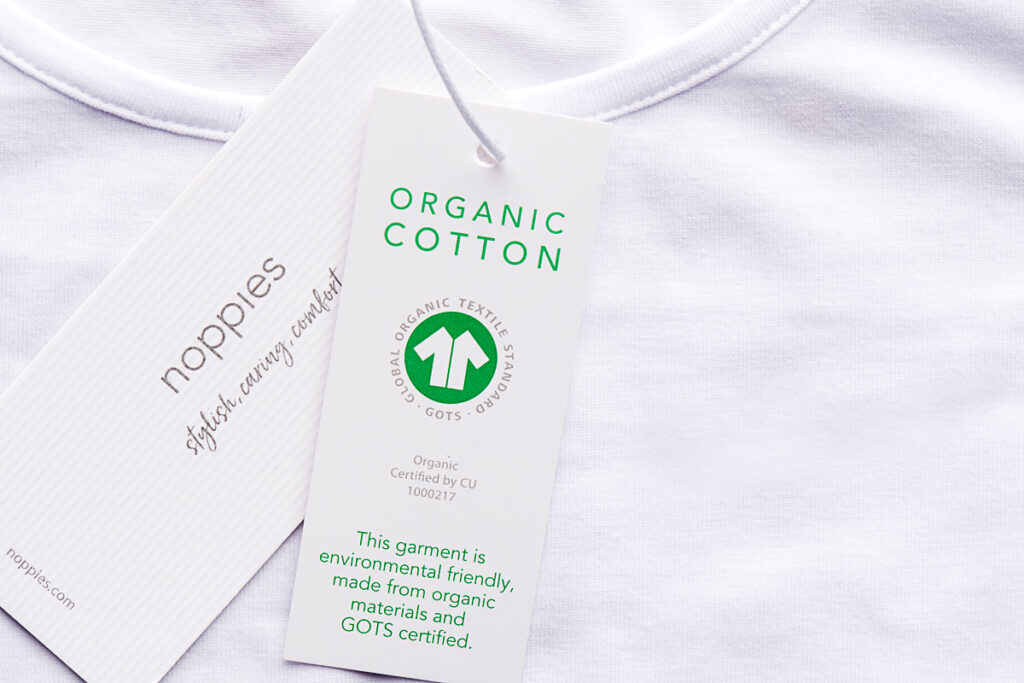
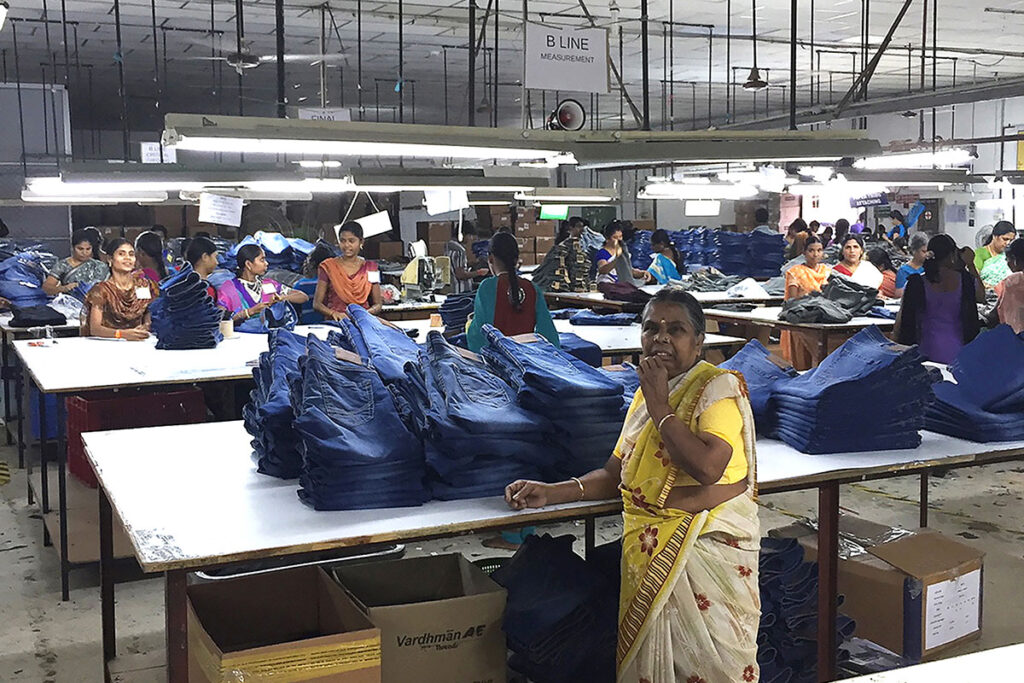
Sustainable production
We work on improving the working conditions for people who produce our products in the factories. Our aim is to thereby develop a long-term relationship with our suppliers, whilst also improving the employment quality.
We are a member of BSCI (the Business Social Compliance Initiative) ourselves and want our producers to be affiliated with one of the social standards (BSCI, Sedex, WRAP or SA8000). Our policy is aimed at optimizing the working conditions at producers step by step, by means of audits and improvement plans.
In order to actually make a difference, we have reduced our producer base from over 100 to about 40 suppliers. Good relationships with a smaller group of suppliers offer us the opportunity to continue to communicate well. Our colleagues from the design & production team visit all suppliers every year to discuss developments and progress in the field of quality and sustainability. This also includes human rights and working conditions. We value transparency and make public who our suppliers are via the Open Apparel Registry.
We always look at what we can do ourselves to facilitate improvements in our chain. We want to buy fairly, which means that we look at what could be done better in every step of the purchasing process: from selecting suppliers to placing an order. Our strategy contains our analysis of the most important risks in our chain, and how we respond to them.
read more in our strategy



Textiel Convenant
We signed the Textile Covenant in 2017 in order to further anchor sustainable production in our business operations. An initiative by the Dutch government to jointly take extra steps as a sector to make both working conditions and materials more sustainable. We can link up with other companies, governments and stakeholders’ relevant projects and initiatives in the countries we produce in by affiliating ourselves with this covenant. This will allow us to realise more for the textile industry than as a company alone. We are very proud to have now successfully completed the first year.
Code of Conduct
The Code of Conduct is a behavioural code prepared by NINE & Co, which states which standards our producers need to satisfy. The Code of Conduct also describes the fundamental standards and values for all our stakeholders. For example, we have laid down how our production should be manufactured under good working conditions and how the welfare of people, the environment and animals should be taken into account. NINE & Co’s Code of Conduct is based on, to name but a few, the conventions of the International Labour Organisation (ILO), the Universal Declaration of Human Rights and the Code of Conduct of the Business Social Compliance Initiative (BSCI). NINE & Co has set the requirement that all its manufacturers are BSCI, SA8000, WRAP or SEDEX accredited and that they have co-signed the Code of Conduct. The producers will be regularly checked for compliance with this code of conduct throughout the production of our collections.
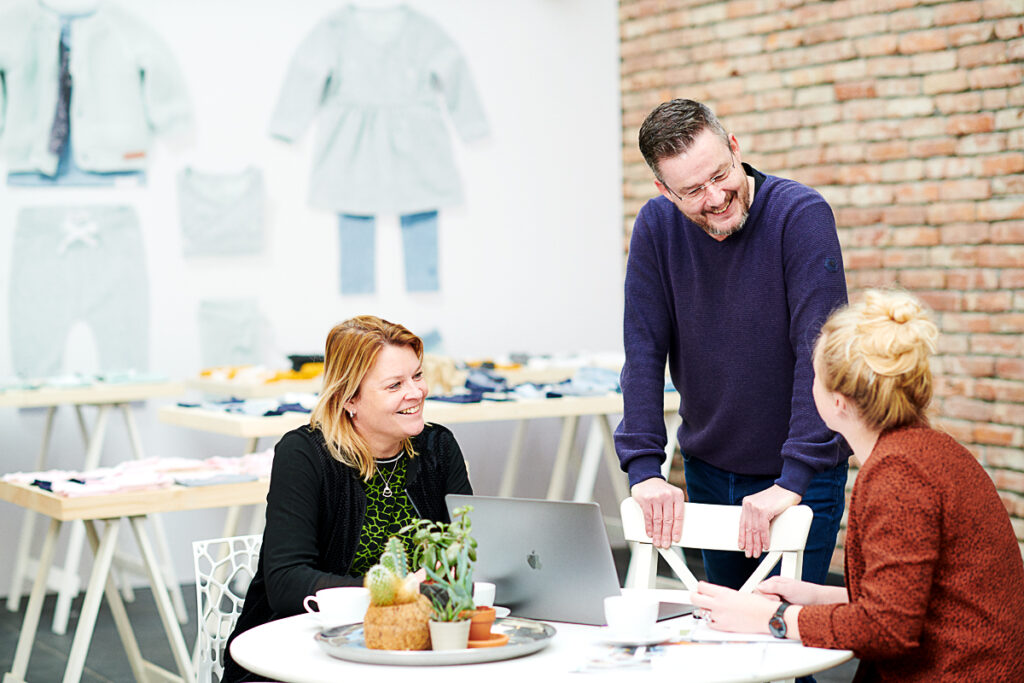
Sustainable materials
GOTS stands for Global Organic Textile Standard. An international quality mark which checks the entire chain of an item of clothing. Many labels look no further than the working conditions in the factories. But this label looks both at the working conditions in the factory and the environmental impact. A GOTS-certification means the raw materials are organic and the entire production process is executed in a socially responsible manner. This starts with the use of organic and natural fibres like cotton or wool. The use of chemicals, water consumption and water purification are subsequently also closely monitored. The working conditions in the workshops are checked during the spinning, weaving and dyeing activities. These conditions will naturally also need to be in good order for everything involved with the packaging, trade and distribution of the final product.
GOTS
GOTS differentiates between two standards: ‘Organic cotton’ or ‘Made with organic’. ‘Organic cotton’ refers to an item of clothing which consists of at least 95% organic fibres. ‘Made with organic cotton’ refers to an item of clothing which consists of at least 70% organic fibres. The GOTS quality mark, and therefore also the GOTS logo, can only be used when all elements of the production process have been GOTS certified. This means the cotton farmer, the yarn spinner and the producer must all meet the strict requirements set by these international guidelines. A summary of the most important points: •Safe working conditions, no discrimination and no child labour •Use of a sustainable waste water system •No use of harmful chemicals, heavy metals, formaldehyde and genetically modified substances •The raw materials used must be completely organic
Better Cotton Initiative
NINE & Co joined the Better Cotton Initiative (BCI) in 2018. Our objective is to source 50% of our non-organic cotton through the Better Cotton Initiative system by 2020. BCI is a collaboration between development organisations, environmental organisations and the business community, whereby the production of the cotton must satisfy certain requirements. Cotton farmers are free to choose which method of sustainable farming suits them best. This will allow for the sustainability of the production process to continuously be further developed through shared experiences. The most important pillar for the BCI is a responsible socio-economic environment. The BCI helps cotton farmers to realise more effective farming methods, which, in turn, can lead to increased yields and therefore an increase in turnover. This will allow them to look after their personnel more effectively and commit more investments to a healthy and safe work environment. The BCI also helps to improve the production process by reducing water and energy consumption levels, ultimately resulting in less damage to the environment.
Recycled and innovative materials
Viscose, polyester and polyamide are commonly used in our fashion items, in addition to cotton. These fabrics offer the level of comfort which we feel is incredibly important in our (baby and maternity) products. We always look at the best options and alternatives, which offer the same properties and degree of comfort as we are used to, in order to reduce the impact of these materials as much as possible. Recycled polyester and sustainable viscose (like EcoVero) are excellent examples of materials which are now starting to feature in a growing share of our collections. These fabrics focus on renewable sources and ensure less water and energy is required during production.
Animal welfare
NINE & Co has been committed to high animal welfare standards since it was originally founded. We believe animals should be treated with care, respect and dignity. Our animal welfare policy brings together our efforts and emphasises our strong commitment to how animals are treated in our supply chain.
Living wage
The way in which we source our products can impact the working conditions at our producers’ sites. We have carefully analysed our purchasing process, looked at how this is currently set up on a step by step basis and subsequently determined how this could possibly affect our producers. This allowed us to identify improvements to ensure this process runs even smoother: with better forecasting and planning of orders and samples. Implementing these improvements has resulted in us being able to create space to work on important themes which are directly linked to this, including working conditions and fair wages.
Optimising our purchasing process will help us to contribute to realising living wages for all those working on the production of our fashion items. A living wage is a salary which won’t just allow the makers to meet their living expenses, but will also ensure they have a little left to put aside to save, or for any unforeseen circumstances.
This means those working on creating our items can financially support themselves (and their families), plus they are given space to invest in a good and healthy life. When we’re working with complex themes like living wages, we will always work together with (expertise) partners and (local) stakeholders. They can help us to organise all the activities as effectively as possible.


